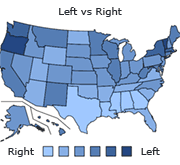Erudite or Charlatan?
Despite the disappearance of slavery in Great Britain, slavery was a way of life in the southern colonies of America and the West Indian colonies of the British Empire. By 1783, an anti-slavery movement was beginning among the British public. That year the first English abolitionist organization was founded by a group of Quakers. The Quakers continued to be influential throughout the lifetime of the movement, in many ways leading the way for the campaign. On June 17, 1783 the issue was formally brought to government by Sir Cecil Wray (Member of Parliament for Retford), who presented the Quaker petition to parliament. Also in 1783, Dr Beilby Porteus issued a call to the Church of England to cease its involvement in the slave trade and to formulate a workable policy to draw attention to and improve the conditions of Afro-Caribbean slaves. Black people played an important part in the movement for abolition. In Britain, Olaudah Equiano, whose autobiography went into nine editions in his lifetime, campaigned tirelessly against the slave trade.
Gideon v. Wainright was a Court case that was decided by the majority opinion of Justice Hugo Black (and concurred unanimously by all other justices) cited the Sixth Amendment’s right to counsel and decided that counsel (attorney) must be provided to criminal suspects (regardless of wealth, education, or class) that accused of any crimes (just not merely capital offenses). The decision in many ways was tied to Miranda v. Arizona because it broadened criminal rights in the liberal Warren Court.

